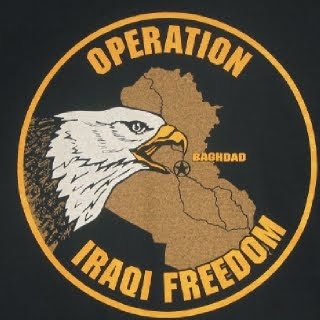On August 31, 2010, President Obama declared that the Iraq war is over. Our question for this week's post is: How is Iraq holding up?
It has officially been a month since the troop withdrawal from Iraq, and the affects on Iraq are already becoming apparent. As we noted previously, there is much left to be done in Iraq; reliable sources of fresh water and electricity remain a major problem, and the threat of violence is still ever present. However, these are not the only issues pressing upon Iraq at this time.
One issue that still remains – even after the war has ended – is the Iraqi government. In March 2010, elections were held in Iraq and caused an uproar. While millions voted, the results were challenged immediately after Ayad Allawi was declared the winner. Many, including the Prime Minister Nuri Kamal al-Maliki, “hurled accusations of fraud.” [1]
As far as America was concerned, the first reaction to the March election was joy that so many citizens were becoming involved. We saw it as a sign of hope for the future of Iraq, but this feeling did not last long. Shortly thereafter, the election set “the stage for a protracted period of political uncertainty and possible violence that could threaten plans to withdraw American troops.” [1] But now that the troops (well, some of them at least) have been withdrawn, has the political climate changed in Iraq?
The simplest answer is no. It has been over six months since the March election and little progress has been made since. As of September 30, 2010, there is no formal government in place in Iraq. The newly elected members of Parliament have yet to come to an agreement as to who should be in charge, and in the six plus months on the job, Parliament has convened for one 19-minute session. According to Timothy Williams and Yasir Ghazi, this six-month period of down-time has drained the energy and optimism from these elected officials and left them with feelings of embarrassment, frustration and anger. Despite their best intentions for the future of Iraq, the current members of Parliament seem apathetic at best. [2]
In addition to the government-centered turmoil is the fact that Iran is right next door. The U.S. “calls Iran a serious threat – one that is boosting efforts to fund, train, and supply and shelter insurgents as the U.S.-led war that began in 2003 winds down. An anonymous senior intelligence official in Washington expressed concern that Iran will supply anyone, terror group or common criminal with bomb-making parts or other weapons to create the image of instability in Iraq.” [3] Iran has a great deal of influence over Iraq due to their shared border, and a lot of illegal activity occurs between these two countries. Border smuggling is a serious issue, and it includes “anything from honey to tobacco to weapons, [and occurs primarily] in Iraq’s southern marshlands where the winding waterways make it all but impossible to tell where Iran ends and Iraq begins.” The U.S. is urging Iraq to use diplomacy: wanting Iraq to use peace – not firepower – against Iran. [3]
Despite the political turmoil and border issues currently occurring in Iraq, Obama is sticking with his plan. As of his U.N. speeches in late September, the President has “reiterated his commitment to finish withdrawing U.S. forces from Iraq by the end of next year.” [4]
After seeing what Iraq looks like after a month, we have to ask ourselves a few questions:
- Are we expecting too much too soon from the Iraqi people?
- Are they ready to simultaneously take control of their security forces and government?
- Can a country assume control of security without any formal government?
- To what degree did our sustained seven-year presence politically stunt their governing system?
- If our soldiers stayed in Iraq, would it even help them or would it only serve to increase the tension with Iran?
We are hoping to see the answers to at least some of these questions in upcoming weeks and months, but in the meantime, we only have the best wishes for the people of Iraq.
Citations:
[1] Williams, Timothy. 2010. Allawi Victory in Iraq Sets Up Period of Uncertainty. The New York Times, March 26. http://www.nytimes.com/2010/03/27/world/middleeast/27iraq.html
[2] Williams, Timothy. 2010. Iraq Waits for a Government on a Long Vacation. The New York Times, September 26. http://www.nytimes.com/2010/09/27/world/middleeast/27baghdad.html?_r=1
[3] Jakes, Lara. 2010. Fortified border: Iraq on guard against Iran. Associated Press, September 26. http://news.yahoo.com/s/ap/20100926/ap_on_re_mi_ea/ml_iraq_iran_border
[4] 2010. Obama’s world: In U.N. speeches, he lays out his global agenda. The Pittsburgh Post-Gazette, September 24. http://www.post-gazette.com/pg/10267/1089876-192.stm



